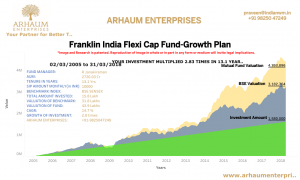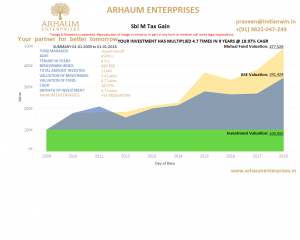As it is said, well begun is half done. We understand and apply that to almost all spheres of life except may be for investment. Investment decisions taken in early stage of life have potential to transform your financial future. As we all know compounding is the eighth wonder of the world and it works best as longer we stay invested. Also starting at young age allows you to take higher risk and invest in growth assets like equity and real estate. Lets try to highlight a few very important financial/investment decisions which one should take before he/she turns 35.
Buy Term Insurance:
This is perhaps the most basic and most important financial decision one needs to take as soon as he/she starts earning. Buy term insurance first at young age to provide yourself optimum life cover at the lowest premium.
The biggest advantage of buying term cover at young age is to avail higher cover at lower premium. Opt for tenure which covers you till 60 or 65 years of age. In these days many Life Insurance companies has started offering On-line Term Plan, you may look at that option also to avail Term Plan.
Next Step is Health Insurance:
Once you have insured your life with adequate term insurance, next in line is to insure any medical emergency. As it is said you should buy health insurance when you don’t need it because when you need it no-one will give you. One obvious advantage is low premium of medical insurance for young individual. This will also allow you to see through initial waiting period of 3 years without any fuzz. Delay buying the policy and you may get afflicted by medical conditions that usually crop up in the late 30s and 40s. Start with individual plan and then convert the same to family floater once you get married and expand the family. Do not rely solely on employer health benefit. In most cases this may not be adequate and remember this will not be available once you retire, the time when the need for health cover will be highest.
Create Emergency Fund:
Even though you are adequately insured there are certain emergencies which insurance does not cover e.g. job loss. Always maintain your 7 to 8 months monthly expense as emergency fund and park the same either in short duration bank F.D. or invest the same in liquid/money market mutual funds or opt for sweep in savings account. This fund will come handy in case you decide to take career break for higher studies or lose your job or prolonged medical treatment.
Start SIP:
Once you are adequately insured and have created an emergency fund, its time to hit the investment highway. Remember compounding works best in longer time duration. Start investing in growth asset like equity through mutual funds SIP route. Always remember, no matter how small the contribution is, compounding works wonders for your portfolio. Just consider this. An amount of Rs. 5000 invested per month, growing at 12% can create corpus of Rs. 1.54 cr in 30 years. The beauty here is your capital investment is only Rs. 18 lakhs and your money is multiplying by 8.5 times. If you delay starting of SIP by just 4 years and give your investment 26 years instead of 30 years, you end up loosing Rs. 54 lakhs as your corpus after 26 years will be only Rs. 96 lakhs. Even small amount of Rs. 2000 invested per month will give you Rs. 62 lakhs at the end of 30 years. So don’t hold back and start investing with whatever small amount you can because remember even Rome was not built in a day.
Create Appreciating Asset:
Leveraging is not recommended in the investment world which but one can leverage to create appreciating asset like residential property. Borrowing at early stage of your life to buy house can help you paying off housing loan early which allows you to buy second home for investment which can provide annuity in form of rent for your retirement years. e.g. typically home loans are of long tenure, 15 to 20 years. So if a 30 year old is taking a home loan for 15 years he can pay it off by the time he will turn 45. Remember for a working professional, decade in his 40’s is the peak of his career in terms of professional growth and income. This can allow him to buy another property and even if he takes another home loan he can easily pay it off by the time he retires.
In India fortunately we get tax deductions on home loans. For self occupied homes, the borrower gets tax deductions under section 80C for principal repayment of up to Rs. 1 lakh and for interest repayment upto Rs. 1.5 lakh under section 24. Even for second home purchased as investment one gets tax deduction on the entire amount of interest paid. These tax advantages make home loans very attractive particularly for borrowers falling in 20% or 30% tax brackets. But remember that your monthly EMI should not exceed around 30% to 35% of your take home salary.
The 5 point agenda which we discussed is simple to understand and implement. There is no rocket science involved in this. But many of us fail to implement these simple steps to provide headstart to being financially secure. Being secured against risk through adequate insurance and having started SIP at early stage of life will allow you to take higher risk as you go along and reach financial ‘nirvana’ by the time you retire. So without waiting for a next minute lets make this resolution of taking right and important investment decisions to give your financial journey a headstart.



